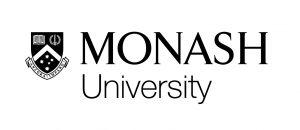
Posted: 8 May 2023
The World Health Organization (WHO) has continually highlighted antibiotic resistance as one of today’s most significant threats to the global community. Faced with rapidly growing antibiotic resistance, there is an urgent need to discover new antibiotics to combat deadly bacterial ‘superbugs’.
Associate Professor Tony Velkov and Professor Jian Li from the Monash Biomedicine Discovery Institute (BDI) have recently been awarded two prestigious R01 grants from the US National Institutes of Health (NIH) to develop novel antibacterial therapeutics against multi-drug resistant bacteria. They lead one of the top anti-infective discovery groups in the world, researching the pharmacology, toxicology, resistance and chemistry of antimicrobial lipopeptides.
Together with Professor Li’s recent e-Asia grant, the combined funding of more than $11 million AUD will help deliver and accelerate translational research to combat the growing bacterial ‘superbug’ challenge.
Director of the Monash BDI Professor John Carroll said these remarkable funding outcomes recognise the Institute’s researchers’ commitment to solving antiobiotic resistance.
“Our world-class scientists are committed to delivering excellence in research, and this significant funding from the NIH is testament to the strength and impact of Jian and Tony’s research into a significant global health threat,” Professor Carroll said.
Associate Professor Velkov of the Department of Pharmacology leads an internationally collaborative project with a team from the University of North Carolina at Chapel Hill (US), to develop novel antibiotic hybrids for the treatment of lung infections caused by bacterial ‘superbugs’. These hybrid antibiotics synergistically attack the bacteria’s weak points, thereby minimising potential resistance.
Carbapenem-resistant Klebsiella pneumoniae is one of the top three WHO ‘Critical’ pathogens and can cause life-threatening infections. Directly tackling different types of carbapenem-resistant K. pneumoniae, Professor Li collaborates with colleagues from the University of Illinois Chicago (US) to develop precision therapy of aminoglycoside antibiotic-based combinations. This program will employ Professor Li’s cutting-edge systems pharmacology platform established at Monash over the last decade.
Professor Li has also been awarded an e-Asia grant to develop novel antibiotics against deadly Gram-negative lung infections. He leads a team with world-renowned scientists from the University of Sydney, WHO Collaborating Center for AMR Prevention and Containment in Thailand, and Purdue University in the US. Professor Li’s group will employ their newly developed atomic-level structure-interaction relationship models and integrate computational, cellular and chemical biology to discover novel drug candidates. Professor Li has established the most comprehensive antimicrobial discovery and development platform in Australia, with an array of essential cell-based and animal models to evaluate safety, pharmacokinetics, and efficacy against various infection types.
A Faculty bridging postdoctoral fellow from Professor Li’s laboratory, Dr Jinxin Zhao, was awarded a project grant by the International Society of Antimicrobial Chemotherapy (ISAC). His project aims to investigate evolution of antibiotic resistance using a lung-on-a-chip technology, systems pharmacology and mechanism-based PK/PD modelling. This is an outstanding achievement for a young ECR and a great opportunity to drive his independent research.
These breakthrough anti-infective programs will deliver translational research providing significant real-world value and impactful health outcomes for Australia.



